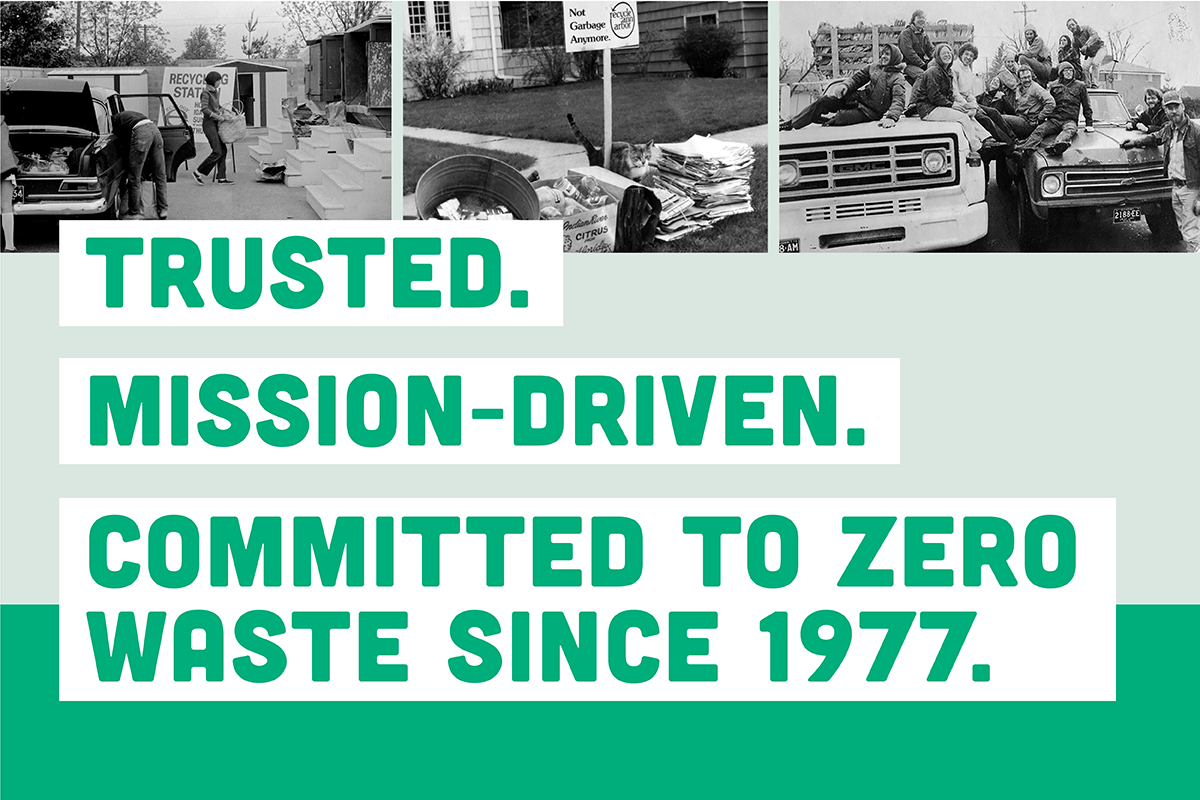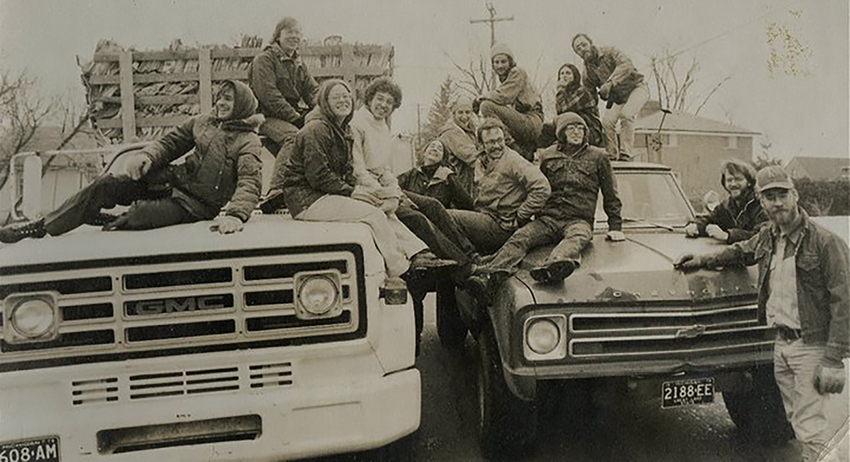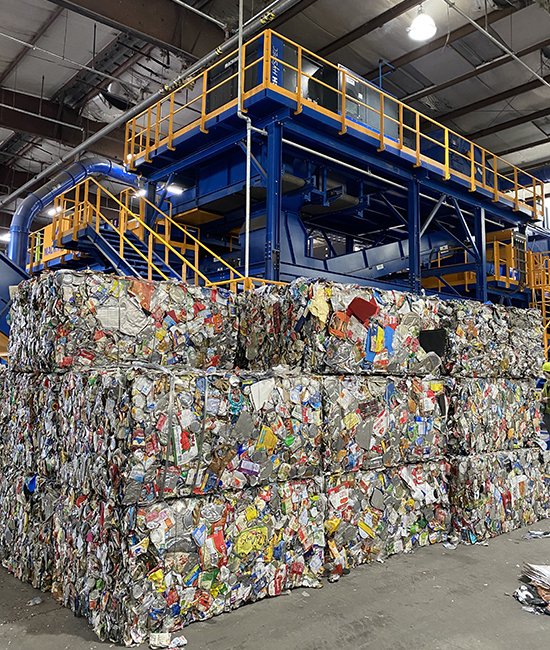
Recycle Ann Arbor: Pioneering a Path to Zero Waste
February 27th, 2025
In 1977, a small group of folks in Ann Arbor came together, united by a shared passion for environmental sustainability. Armed with just a few trucks and a desire to effect positive change in their community, they began collecting recyclables curbside throughout the city. This grassroots movement led to the establishment of one of the nation's first curbside recycling programs and Michigan's first. This also marked the beginning of a legacy that has lasted over 45 years for a nonprofit social enterprise, dedicated to achieving zero waste, known as Recycle Ann Arbor.

Since its inception, Recycle Ann Arbor has remained committed to serving our community and protecting the environment. As a mission-based, zero-waste recycler, RAA operates several divisions focused on reducing waste through credible, authentic recycling. One of these is our state-of-the-art zero-waste Material Recovery Facility (MRF) dedicated to eliminating the need for virgin materials by recycling traditional materials collected curbside into feedstock. This feedstock can, in part, replace the need for mining, harvesting, and depleting our finite resources.
Unlike MRF industry norms, Recycle Ann Arbor prioritizes the marketing of the recyclables we process to go to the highest value and best use. In the case of plastics, RAA ensures the purity of its feedstock and that it will go to the best recycling market for the highest use, where it can be turned back into bottles again and again. This approach maximizes the chances of keeping materials in the recycling loop. Virtually all of RAA’s materials are sold to local and regional markets ensuring that the environmental and economic benefits of recycling remain within the community.

What sets Recycle Ann Arbor apart from most other recyclers is that we advocate that recycling alone cannot resolve our waste problem. Instead, RAA views recycling as a bridge towards a more sustainable solution by focusing on reducing waste at its source through the development of more reusable and refillable products and packaging.
Despite efforts to maximize recycling in Ann Arbor, statistics reveal a stark reality. Only 21% of potentially recyclable items are recycled nationally, with Michigan slightly higher at 23%. RAA recognizes the urgent need for a change in thinking, particularly concerning problematic materials like most plastics, which are often not recyclable. Even when recycling is possible, many recyclable items end up in the trash, indicating that we continue to extract resources to support a linear, wasteful economy. Why does that matter? This issue carries significant environmental implications, especially for frontline communities that are disproportionately impacted by waste and the treatment of our waste.

In less than 75 years, the world has moved from systems that conserve resources through reuse and refillable products to a culture of convenience that has led to an explosion of single-use items that pollute our environment. We must confront these impacts and transition back to a culture of reuse, utilizing existing infrastructure where we can. That's why Recycle Ann Arbor partners with other organizations to revive the reuse culture through our programs like Boost Reuse. While recycling remains a vital part of reaching our goal of zero-waste, RAA embraces reuse as a crucial strategy in the fight against waste.